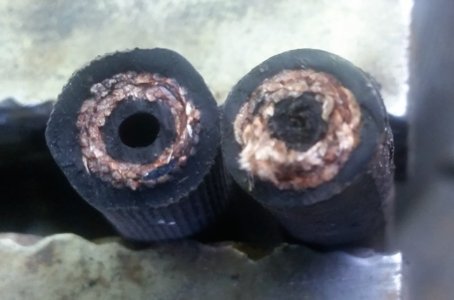taylorcom
Well-Known Member
I took my '72 3.0CS for a spin today (a 6.5-mile roundtrip to get gas) and when I got within about half a mile from home on the return trip, I noticed the brakes fading. I got home, checked the fluid reservoir and it was full. Then I checked the rear wheels and both were very hot. So I'm thinking the brake fade could have been due to over-heated hydraulic fluid at the rear brakes.
The right rear caliper was replaced with a new one in the mid-90s, the left rear caliper and hose may be original. I've noticed that new calipers are hard to find now, so would it be wise to start by replacing the hoses and see if that improves the situation? Thanks in advance, folks.
The right rear caliper was replaced with a new one in the mid-90s, the left rear caliper and hose may be original. I've noticed that new calipers are hard to find now, so would it be wise to start by replacing the hoses and see if that improves the situation? Thanks in advance, folks.

